Premium Only Content
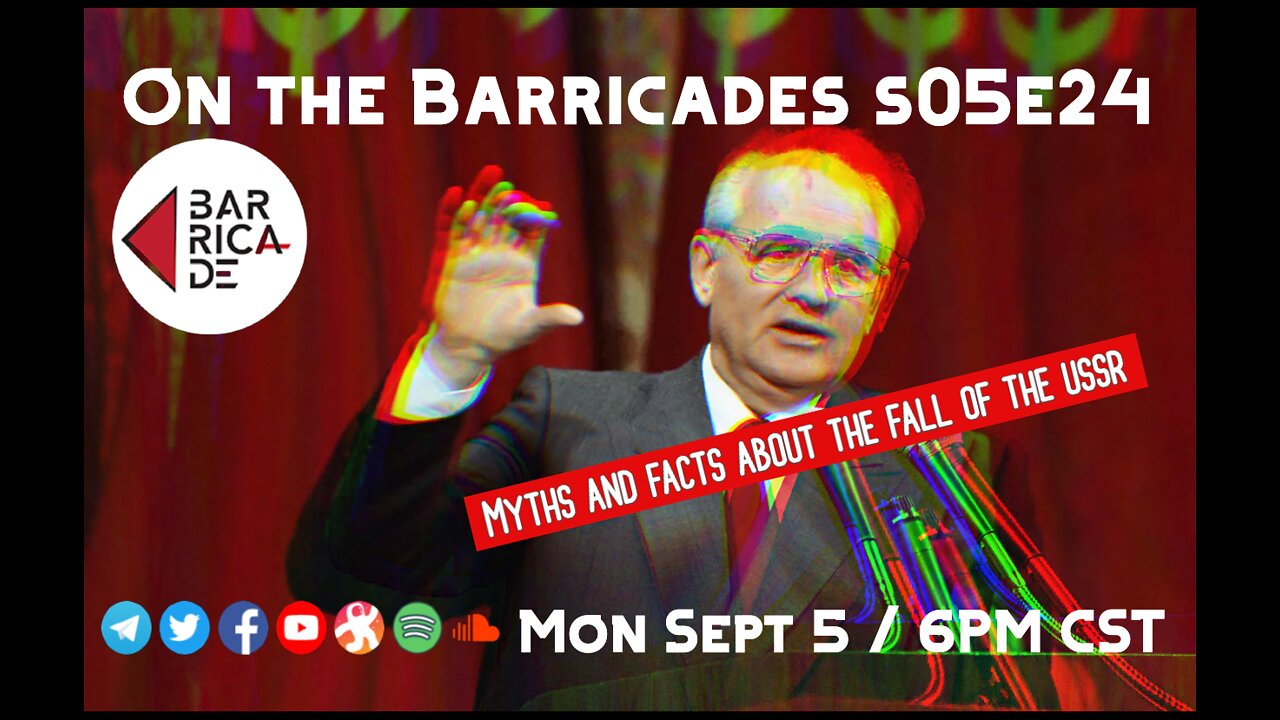
Gorbachev – reformer or traitor?
“On the Barricades” s05e24
This is a special release of “On the Barricades” dedicated to the question of the dissolution of the Soviet Union and the role of Mikhail Gorbachev, its last leader whose recent death brings our attention to questions that are vital to the future work of the Left. What happened in this historical and political process, why, and did it have to happen or was there an alternative? What was the role of key individuals like Gorbachev? What are the consequences?
Hosts Boyan Stanislavski and Maria Cernat speak with Pat Byrne, who is a long-standing activist and historian of the European left. Pat has been researching the history of the Soviet Union as well as the comparable development of Chinese socialism, his insights on which are a focus of today’s show. His latest book, preliminarily called “Why China will lead the world and what it could look like,” will be released in early 2023.
3:00 Background on Gorbachev’s biography
7:00 How was Gorbachev different from previous Soviet leaders?
8:30 Gorbachev’s attitude toward his own tasks with regards to the economy: to reinvigorate and reform, rather than rescue the economy from crisis
9:40 Gorbachev’s low popularity among Soviet people and what this signifies
11:00 The Left’s failure to discuss why the Soviet Union failed and what the lessons are; consequences
12:15 Was Gorbachev honest and sincere in his attempts to reform the economy? If so, what was the nature of his mistakes? Or was he a cynical traitor in cahoots with the US?
18:00 Treason – in that the population of the Soviet bloc was against dissolution. Boris Yelstin and CIA ties?
21:20 Gorbachev’s reforms and the mistakes made. Comparison with history of reforms from China’s policy post-Mao – and how these influenced Gorbachev’s (problematic) approach to reform.
39:30 Gorbachev’s campaign against alcohol as an example of the dysfunctional bureaucracy
42:12 Under Brezhnev’s rule. The massive increase in prices in raw materials in the second part of his rule, which masked the economic contradictions. How this created a hole in government finance when the boom ended.
51:10 Why did Gorbachev’s reforms fail? What could have had a better chance of success instead?
56:20 Gorbachev’s lack clear understanding of glasnost and democracy
58:25: Comparing China and USSR reforms, successful in China but a failure in the USSR
1:03:45 … How has China had such fantastic success?
1:08:20 China’s planning process– and its areas for improvement
1:11:15 Pat’s and Boyan’s personal anecdotes from living through the fall of the Soviet Union
1:19:42 The lack of opposition to the socialist regime, for example in Bulgaria
1:27:00 What conclusion should the Left take? Could the Soviet Union have been reformed rather than having to be dissolved?
1:31:20 Trotskyism, the opposition to Stalinism, and its lack of practical alternative to the ailing model
1:38:40 Maria on the situation in Romania during the socialist period and subsequent anti-communism
1:53:27 Closing remarks
-
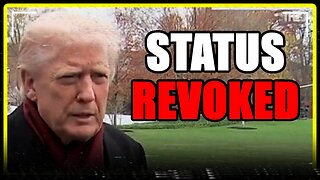 9:46
9:46
MattMorseTV
12 hours ago $9.10 earnedTrump just SHUT DOWN a $287,000,000 FRAUD RING.
10.9K60 -
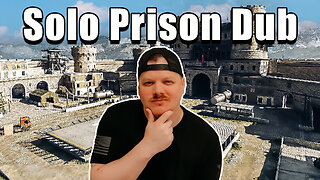 15:48
15:48
GritsGG
14 hours agoWinning a Rare Solos Prison End Game on Warzone!
5.07K -
 11:37
11:37
The Pascal Show
14 hours ago $1.19 earnedTHEY WANT TO END HER?! Candace Owens Claims French President & First Lady Put A H*t Out On Her?!
4.88K4 -
 LIVE
LIVE
Lofi Girl
2 years agoSynthwave Radio 🌌 - beats to chill/game to
299 watching -
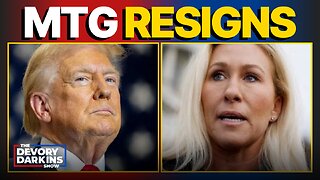 24:30
24:30
DeVory Darkins
15 hours agoMarjorie Taylor Greene RESIGNS as Minnesota dealt MAJOR BLOW after fraud scheme exposed
70.8K118 -
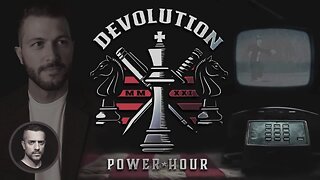 2:19:48
2:19:48
Badlands Media
1 day agoDevolution Power Hour Ep. 409: Panic in the Narrative — Epstein, Israel, and the Manufactured Meltdowns
161K56 -
 1:52:38
1:52:38
Man in America
12 hours agoCommunists VS Zionists & the Collapse of the American Empire w/ Michael Yon
69.9K43 -
 4:09:34
4:09:34
Akademiks
7 hours agoSheck Wes exposes Fake Industry. Future Not supportin his mans? D4VD had help w disposing his ex?
42.2K3 -
 6:43:43
6:43:43
SpartakusLIVE
11 hours agoTeam BUNGULATORS || From HUGE WZ DUBS to TOXIC ARC BETRAYALS
115K3 -
 2:44:56
2:44:56
BlackDiamondGunsandGear
7 hours agoAre You that guy? / Carrying a Pocket Pistol /After Hours Armory
27.1K1